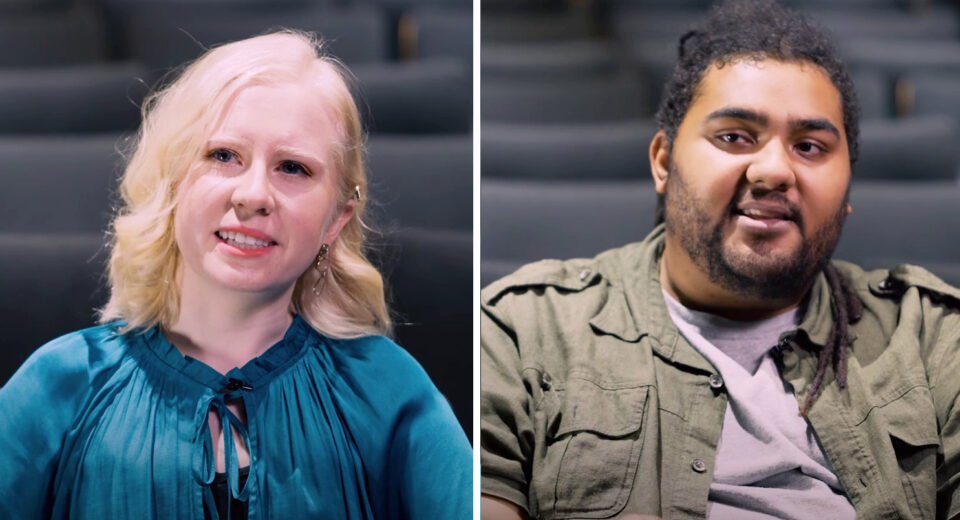Finding yourself as an actor can be a complex process. There’s the technique and theory behind acting. The different approaches and methods to employ. There’s the physical nature – learning how to use your body and voice to portray character and emotion.
There’s the matter of the industry itself – learning to approach auditions with confidence, showing what you can do, and giving the best account of yourself.
To offer insight into what students gain from this program, we spoke to two graduates of Arts Umbrella’s post-secondary programs to learn how it shaped them as artists, what tools and methods they picked up, and what their Arts Umbrella experience means to them.
Sidney Klips – Conservatory Graduate, 2017
It’s something really, really special here. These are incredible people and incredible working artists who are willing to pass on their knowledge and skills in a way that is full of generosity and kindness. They had no other motivation than wanting us to be the best that we could be.
I was looking for a program that was going to give me a really solid base on acting technique, as well as voice and text work. It really delivered in that respect. We studied the Fitzmaurice Technique, Meisner, Stanislavski… it was really great getting a taster from such a huge range of techniques.
But it was also very flexible. The faculty said: “this is a tool-kit and you can pull what you need from it.” To be able to take what I found useful and integrate it into my craft was great.
You can have all of the theoretical knowledge in the world, but it’s no use if you don’t know how to implement it. The actual practice of acting and auditioning, of working with professionals in the room—that was integrated into the program.
We had audition workshops where we were taking our fresh material and preparing it for that setting. That was a weekly class, and that kind of time is invaluable—because the majority of what you’re doing as an early acting is auditioning.
That has been critical. I’m now very grateful to walk into a room on the first day of rehearsal because I feel confident that I’m going to be able to figure my way through the acting problems that come up. That all comes from training.
You learn by doing, and we got to do it, so it was exciting. We mounted a full production with other working actors and professional directors. It helped us to understand a production from different perspectives; like sound design, costuming, all the work and effort that goes into it.
The heart of the program is the people and the faculty. The commitment to the students’ uniqueness, to developing their craft, to being the best artist they can be. They really gave me the confidence to step out into the professional world and be a confident working performer, choreographer, and arts educator.
Isaac Hotchkiss – Conservatory Graduate 2017
The program gave me so much drive to get the work done. It has given me so much structure as a person. It’s super character-building. It builds things you can take outside of acting and put into your regular life.
Before the program, I liked theatre and I’d seen a couple of shows, but I didn’t have the knowledge of specifics or backstage. What I drew from it was the understanding of all the basic things you need to be a theatre person.
We studied Stanislavski and Jordan Tannahill. There was a lot of dissecting of different terms and things that happen in theatre, helping us understand different styles of writing and acting. How you can mix and match and bring different things to roles or situations. It wasn’t airy—it was good, solid knowledge that you could retain, understand, and make notes with.
One of the big things was getting honest criticism when I wasn’t doing something right or exploring something to the fullest extent. If you can handle the tough love and criticism, that’s what’s going to help you. Being open to criticism and different ideas is a big thing I’ve taken into my acting.
It gave me adaptability. Being able to change with other people’s ideas on the fly is so big in theatre—to adjust to moods, temperaments, and how things are going. It lets you be more relaxed, to go with the flow easier, and that’s important to have as a theatre artist.
The faculty are professional actors, and they want to see more professional creatives. They don’t tip-toe or give false compliments—they’re real with it. They want to do what’s best for today’s actors and artists.
For them, it’s not about ‘is it going to look good when it goes in stage?’; it’s about going out there, wowing audiences, and bringing out something vulnerable from yourself.
